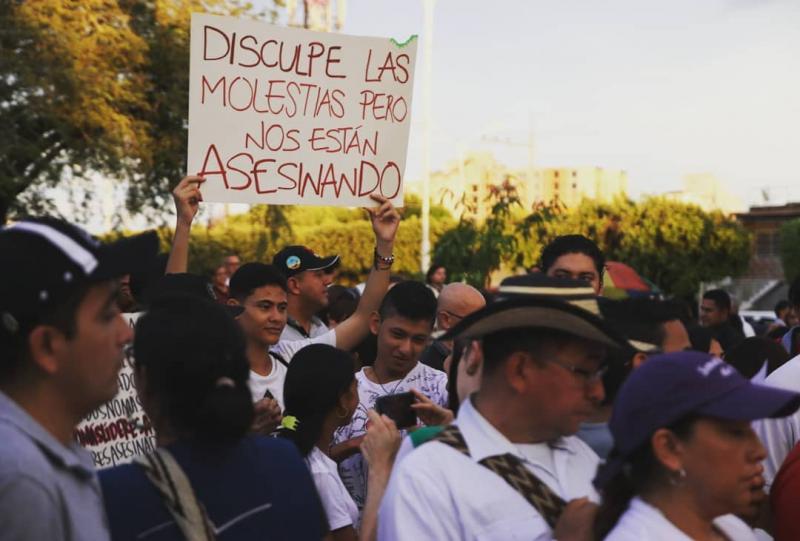After the end of the binary world (Capitalism vs Communism), the reigning empires consolidated and expanded democracy as a system for organizing the social, political, economic and cultural life of societies across the globe. Thus, peoples and nations on different continents initiated democratization processes promoted by international organizations and States exercising global hegemony. Democratization has indeed brought progress in guaranteeing and accessing fundamental and human rights for many people. However, it has not been possible to dismantle the power structures present in this model that impact the daily societal relationships in the public and private spaces of our lives.
Long before the COVID-19 pandemic appeared, which developed a new economic and social crisis, democracy and the capitalist system of production were already facing another severe crisis evident through local and global increases in poverty rates, together with the resurgence of violence and the emergence of new armed conflicts. These systems are built on distinctions, hierarchies and privileges that are not “natural” or fair. So, as these oppressive structures deepen, subaltern and oppressed sectors offer counter-hegemonic responses that seek to break the power relations that violate human dignity. In this context of resistance, local and international social organizations are advocating for a living wage that would close inequality and inequity gaps driven by privilege and the lack of empathy towards others.
Colombia is a concrete example of what I’ve described above. Since the end of April, diverse social and popular sectors have converged for a National Strike, protesting against decades of abandonment and injustice that has affected broad sectors of Colombian society. Today, we see in the streets a variety of expressions of protest that are committed to creating dialogue, which has opened debates on a national level that the Colombian State and its governments have postponed for many years thanks to the use of military and police force.
Included in these debates is the discussion regarding the level of inequality in Colombia and the lack of will of its political and economic elites to find a way out of the country’s social crisis. Faced with this problem, strike leaders proposed a guaranteed basic income, which would enable the sectors most affected by the economic and social inequalities to access fundamental rights and freedoms, seeing as Colombia is a democracy and a social State under the rule of law.
But what is a living wage? And why is it an important measure to solve the crisis? The answer to these questions requires recognition that Colombia is considered a democracy under the auspices of a social State of law, meaning that the State is the only political actor with the responsibility and the duty to protect democratic values such as human rights or freedom. The living wage is a concept that seeks to guarantee people a quality of life that enables them to develop their life projects. Likewise, it is considered a mechanism of social equity, understanding that social transformations occur by removing obstacles that prevent access to better educational, employment and economic opportunities. Furthermore, the debate takes on greater importance at this precise moment, because if we consider a living wage as an inalienable human right, vast sectors of Colombian society, who have historically suffered the effects of injustice, could enjoy a minimum economic security to cover their basic needs arising from the crisis. These injustices are the very reason that today the Colombian streets are a battlefield between those who demand job opportunities, better health and education, and those who seek to prevent any change that affects the status quo.
I want to conclude by noting that the living wage alone cannot stop the deterioration that the crisis has produced in Colombian society as a whole—it is clear that other types of political, social and economic measures are needed to make real and sustained improvement over time—but it is a reminder that those who suffer injustices have the right to a dignified life and to have their humanity respected.




